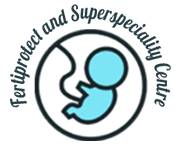Kidney Services

Chronic Kidney Disease (CKD)
Chronic kidney disease (CKD), also known as chronic kidney failure, is a condition where the kidneys gradually lose their ability to filter waste and excess fluids from the blood. As kidney function declines over time, harmful levels of fluids, electrolytes, and waste can build up in the body. To manage CKD effectively, it is important to consult a Top Kidney Specialist in Pune like Dr. Sandeep Morkhandikar. He provides expert care to help slow down the progression of CKD, manage complications, and enhance overall kidney health.
In the early stages of CKD, symptoms may be minimal or not noticeable, and many individuals may not even realize they have the condition until it reaches an advanced stage.
Treatment for CKD primarily focuses on slowing the progression of kidney damage, typically by controlling the underlying cause. However, even when the cause is managed, kidney damage may still progress. Without proper treatment, CKD can lead to end-stage kidney failure, which requires dialysis or a kidney transplant for survival.
Symptoms of Chronic kidney disease
The symptoms of CKD tend to develop slowly over time as kidney function deteriorates. The loss of kidney function can result in a build-up of waste, fluid, or electrolyte imbalances. Depending on the severity, you may experience symptoms such as:
Nausea
Vomiting
Loss of appetite
Fatigue and weakness
Sleep disturbances
Changes in urination frequency
Decreased mental sharpness
Muscle cramps
Swelling in the feet and ankles
Dry, itchy skin
High blood pressure (hypertension) that is difficult to control
Shortness of breath if fluid accumulates in the lungs
Chest pain if fluid builds up around the heart lining
The symptoms of CKD are often nonspecific, meaning they can be caused by various other conditions. Since the kidneys can compensate for lost function, many people do not show symptoms until the damage is irreversible.
Diagnosis of CKD
To diagnose kidney disease, your doctor will start by reviewing your personal and family history. They may ask about existing conditions like high blood pressure, medications that might affect kidney function, and any noticeable changes in urinary habits. The doctor will also perform a physical examination, checking for signs of heart or blood vessel issues, and a neurological assessment.
Several tests are used to determine the severity and cause of CKD, including:
Blood tests: Kidney function tests measure the levels of waste products, such as creatinine and urea, in the blood.
Urine tests: A urine sample is analyzed to detect abnormalities that may indicate chronic kidney failure.
Imaging tests: Ultrasound and other imaging methods help assess the structure and size of the kidneys.
Kidney biopsy: If necessary, your doctor may recommend a biopsy to remove a small sample of kidney tissue for testing. This procedure is often done under local anesthesia using a thin needle.
Treatment Chronic kidney disease
The treatment for CKD depends on the underlying cause of the kidney damage. In many cases, while there may not be a cure, treatments can help manage symptoms, reduce complications, and slow the progression of the disease. In cases of advanced kidney damage, you may require treatments for end-stage kidney disease.
Treating The Cause
Your doctor will work with you to manage the underlying conditions that are causing your kidney damage. For example, if diabetes or high blood pressure is the cause, controlling those conditions can help prevent further kidney damage. However, kidney damage may still progress despite treatment for the underlying condition.
Treating Complications of CKD
Managing complications is key to improving quality of life for individuals with CKD. Some treatments for complications include:
High blood pressure medications: ACE inhibitors or angiotensin II receptor blockers are often prescribed to control blood pressure and protect kidney function.
Diuretics: These help control fluid retention and reduce swelling in the legs and other areas.
Anemia medications: Erythropoietin (EPO) and iron supplements are used to treat anemia related to CKD, helping to alleviate fatigue and weakness.
Cholesterol-lowering medications: Statins are prescribed to manage high cholesterol levels, which are common in CKD patients.
Bone protection medications: Supplements like calcium and vitamin D can prevent bone weakening, and phosphate binders help lower phosphate levels in the blood.
Low-protein diet: Your doctor may recommend reducing protein intake to reduce the amount of waste your kidneys need to filter.
Dr. Sandeep Morkhandikar, a renowned Top Kidney Specialist in Pune, offers comprehensive care for Chronic Kidney Disease (CKD) Treatment in Pune. With his expertise and advanced treatment methods, he is dedicated to helping patients manage CKD and maintain their kidney health. Whether you need early-stage intervention or advanced care, Dr. Morkhandikar’s approach focuses on improving your quality of life and slowing the progression of kidney disease.
